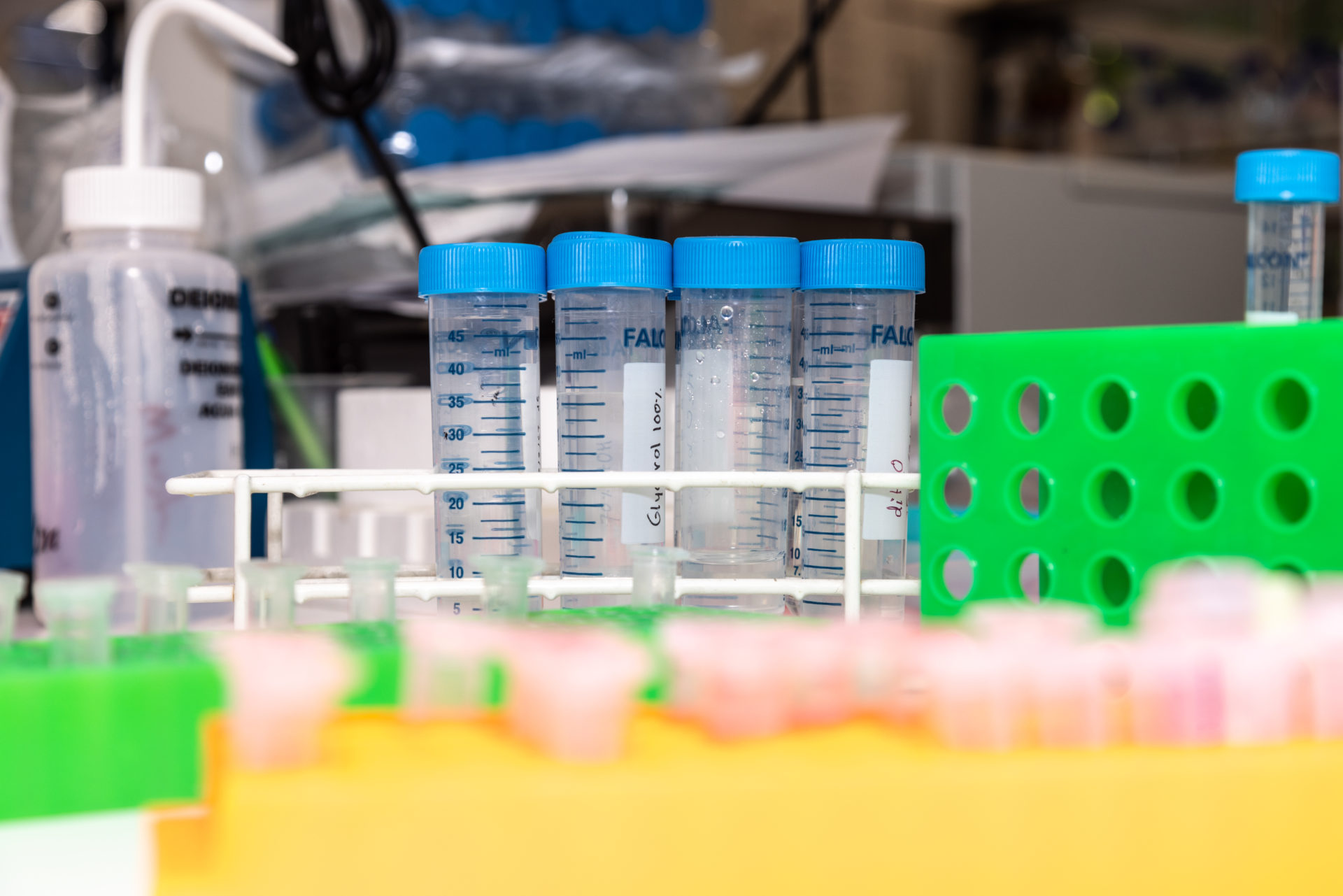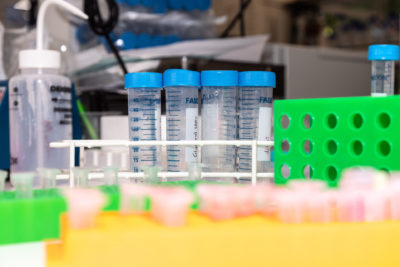



New hope for treating pancreatic cancer: Targeting the ‘recycler’ protein USP25
Pancreatic cancer is tough to diagnose and tough to treat. Most people with pancreatic cancer are not diagnosed until their disease has spread outside the pancreas, at which point it is hard to treat. Over 70% of people do not receive any treatment at all. Developing new treatment options for pancreatic cancer is a huge challenge, with no major breakthroughs having been seen in decades. However, a new innovative study, led by Professor Axel Behrens at the Institute of Cancer Research in London, may revolutionise pancreatic cancer therapy and offer new hope to patients.
Starving cancer cells of oxygen
All cells require a source of oxygen and energy to grow. Because cancer cells grow at a rapid rate, they outstrip their oxygen supply. However, cancer cells can adapt to a low-oxygen environment with the help of HIF-1a, a protein which enables new blood vessels to form and increase the supply of oxygenated blood.
In normal cells, the activity of HIF-1a is controlled by a ‘binning’ process. Professor Behrens’ team believe that cancer cells use another protein, known as USP25, to ‘recycle’ HIF-1a and allow their continued rapid growth. Initial laboratory-based tests have shown that by deleting the gene USP25 or blocking its actions (using drugs developed for other purposes), cancer cells are starved of oxygen and their growth is reduced. Therefore, USP25 may represent a key druggable target for the treatment of pancreatic cancer and other types of tumours that rely on a large oxygen supply (for example, breast cancer).
This work was published in the highly-regarded journal Nature Communications earlier this year, and you can read the full article here.
The research team are now planning to design molecules which can block the action of USP25, and ultimately test this new therapeutic option in pancreatic cancer patients, which they hope may be possible in the next five years. They are also looking to investigate the role of other ‘recycler’ proteins that may provide other promising new treatment targets in pancreatic cancer.
We are committed to supporting the development of new treatments for pancreatic cancer
Although Professor Behrens’ project offers hope, research into pancreatic cancer is disproportionately under-funded, receiving only 3% of the UK cancer research budget.
We are committed to investing in innovative research that seeks to address the urgent need for more effective treatment options for pancreatic cancer patients.
We are currently funding a range of projects in the area of treatment and care, some examples of which are below.
- Professor Nick Lemoine and hits eam at Barts Cancer Institute & King’s College London are investigating the potential of a promising new type of cancer therapy, called Chimeric Antigen Receptor modified T (CAR-T) cell immunotherapy, for pancreatic cancer. CAR-T therapy seeks to train our body’s own immune system to identify and destroy cancer cells. This treatment has been extremely successful for other types of cancer such as leukaemia, and has great promise as an effective new treatment for pancreatic cancer.
- Mr Keith Roberts at the University Hospitals Birmingham NHS Foundation Trust is leading a project focussed on developing a blood test to identify people who have pancreatic enzyme insufficiency. The team hope to be able to identify those who would benefit from Pancreatic Enzyme Replacement Therapy (also known as PERT) quickly and also, crucially, what dose they need. If successful, this could help people with pancreatic cancer manage their symptoms and stay well enough for treatment.
- Professor Gail ter Haar at the Institute of Cancer Research in London is exploring new ways to break through the dense fibrous cage that surrounds pancreatic cancer and makes it so tough to treat. The research team will use two approaches to overcome this barrier; first, they have developed an ultrasound technique that may be able to weaken the casing, and then they will use specially designed viruses to target and kill pancreatic cancer cells. Making the tumours more permeable also has great potential to enhance the effectiveness of existing therapies, providing more effective treatment options for people with pancreatic cancer.
This is just a small taste of the research we fund. To find out more about our work, please visit our research webpages.

